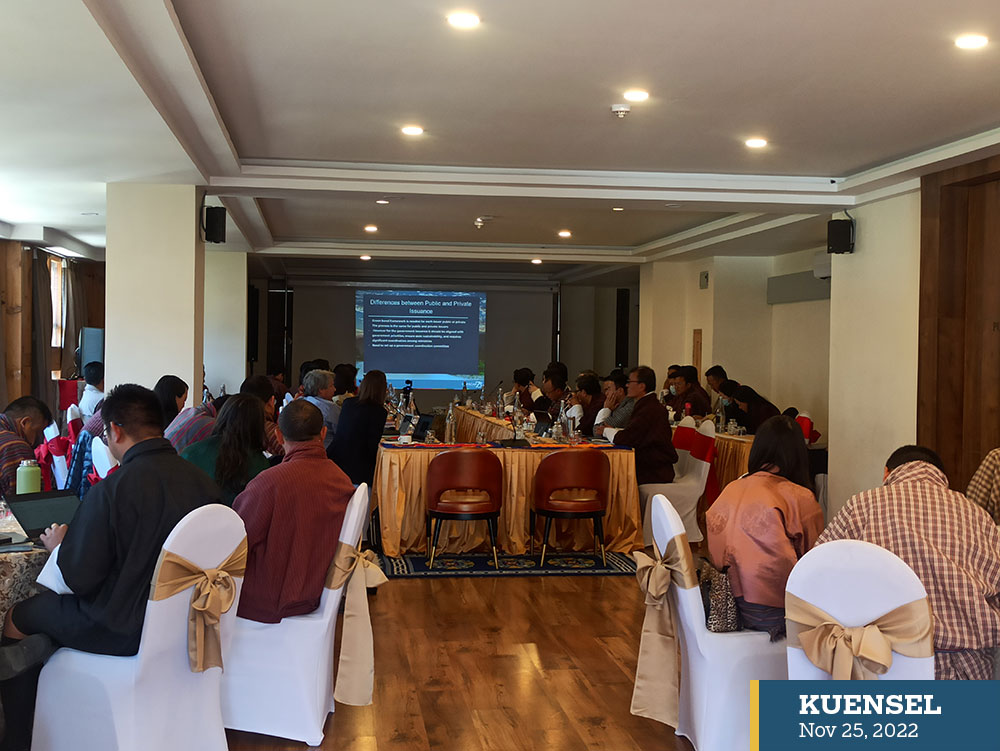Thukten Zangpo
With the increasing need for financing climate mitigation and adaptation activities, Bhutan will be developing a framework for sovereign green bonds.
A sovereign green bond is a debt instrument issued by the government to borrow money from investors with the commitment that the mobilised fund would be spent to finance eligible green projects.
This will help close the green investment gap and help countries reach their sustainability targets.
During the discussion on “Financing Bhutan’s Green Transition” in Thimphu yesterday, the economic affairs officer of the United Nations Economic and Social Commission for Asia and Pacific (ESCAP), Deanna Morris said that the government issuance should be aligned with the government priorities, ensure debt sustainability, and would require significant coordination among ministries. She added that there is a need to set up a government coordination committee.
Deana Morris also said that the green bond framework is a document that shows the characteristics of the bond. The core components of the green bond principles are the use of proceeds, evaluation and selection process, management of proceeds and reporting.
“Every single issuer has to develop the framework,” Deana Morris said, adding that the components will look into how and who selects the projects, ensure whether the projects are going towards a green social sustainable project, and report back to the investors on the target set.
“Bhutan could be eligible for project categories-renewable energy, energy efficiency, green buildings, clean transportation, sustainable water and wastewater management, pollution prevention, control and circular economy, climate change adaptation, biodiversity conservation, sustainable management of natural resources and land use,” climate finance advisor of ESCAP, Dr Patrick Martin said.
The finance ministry stated that the potential of green bond issuance would provide new investment options for local institutional investors, attracting international investment, and supporting green job creation.
An official from the Royal Monetary Authority said that the authority completed the first version of the green taxonomy in November 2021 and reviewing again. However, he said that the lack of data is still a challenge.
A green taxonomy is a list that classifies all business activities based on their contribution to environmental aims and thresholds.
ESCAP is supporting Bhutan develop the sovereign green bond framework and green taxonomy along with training support to relevant stakeholders on green bond issuance.
The debt management division of the finance ministry is leading Bhutan’s green financing efforts.
Green bonds have long been the dominant player in the thematic bonds space, reaching USD 1 trillion issued globally in 2021.
The officials from the finance ministry, central bank, financial institutions, and other relevant agencies attended the stakeholder meeting yesterday.


